Challenging poverty through social enterprise: unveiling the 2023 Social Innovation Challenge winner
Half-way through Challenge Poverty Week, we take a moment to reflect on the latest edition of our Social Innovation Challenge programme and to celebrate the winner of this year’s £50,000 award.
The Social Innovation Challenge has one core aim at its heart: to help address the most pressing challenges of our times by enabling and supporting innovative social enterprise responses to these complex issues. Whilst in 2022, we sought to help address the ever-worrying climate crisis with a focus on Scottish rural communities, 2023 threw an undisputable challenge in the mix: the rising cost of living.
Unfortunately, poverty is a long-standing issue in Scotland. The Poverty Alliance, Scotland’s anti-poverty network, launched their first Challenge Poverty Week campaign back in 2013. The aim of the week was ’to highlight the injustice of poverty in Scotland, and to show that collective action based on justice and compassion can create solutions.’ Fast forward to 2023 and the issue is perhaps more pronounced than ever.
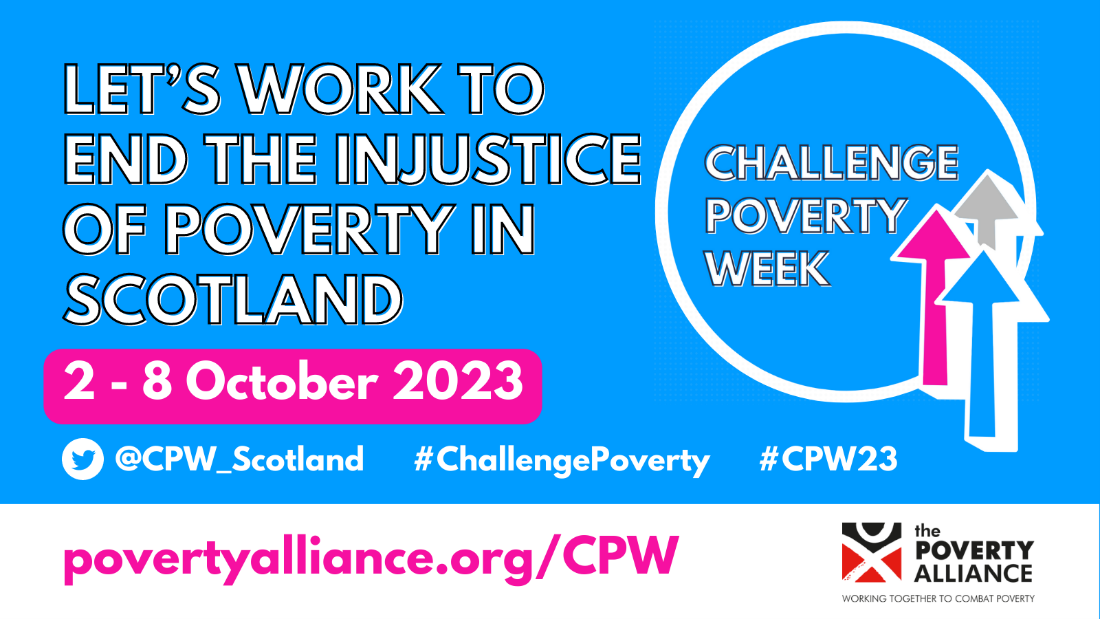
We felt it was only right to cast our attention to this issue as part of the Social Innovation Challenge. At Firstport, we strongly believe that social enterprise is vital to society, the environment, and the economy and that it can show new ways of tackling deep-rooted problems. We can only solve systemic issues through purposeful solutions built on passion but also economically sound. We need to think beyond short-term fixes and start focusing on ways to build new models that are ethical, sustainable and socially driven.
This year’s Social Innovation Challenge winner
We are more than thrilled to announce that this year’s Social Innovation Challenge winner embodies all the above: ApparelXchange.
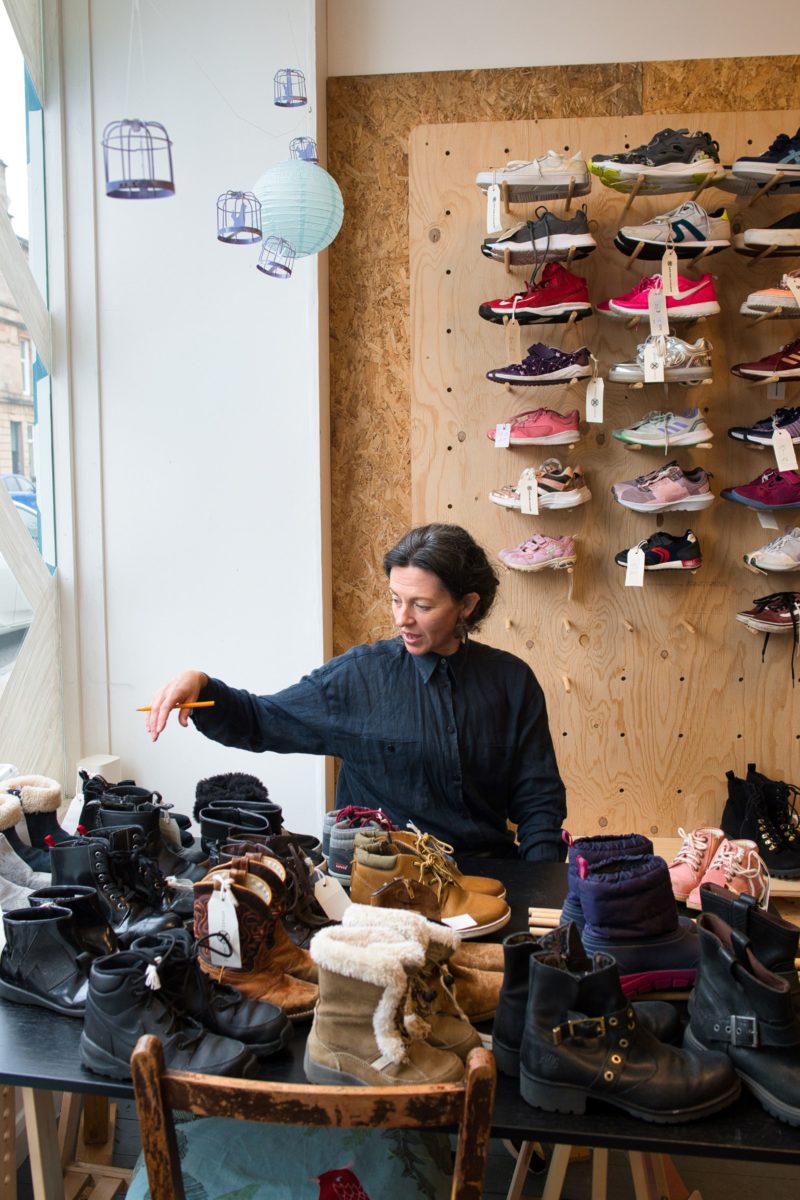
ApparelXchange C.I.C is a social enterprise dedicated to reusing, repairing and recycling school-aged children’s fashion and footwear. They were established in 2018 in response to the waste and cost involved in school uniforms. They now have an online shop, a large warehouse in the city centre of Glasgow and a community-focused retail space in the Southside of Glasgow, which acts as a base for their engagement and outreach events. The primary problem they seek to address is clothing poverty as a subset of the cost-of-living crisis: families’ inability to clothe their children, which in turn affects their health, wellbeing and dignity.
This is in the context of child poverty in Glasgow being at a record high. The cost of many day-to-day purchases has also increased dramatically over the last 12 months, affecting families across Scotland. Rising living costs may also prevent children from participating in sports if their families can’t afford the appropriate clothing, exacerbating existing public health problems such as childhood obesity and the decline in young people’s mental health since the pandemic.
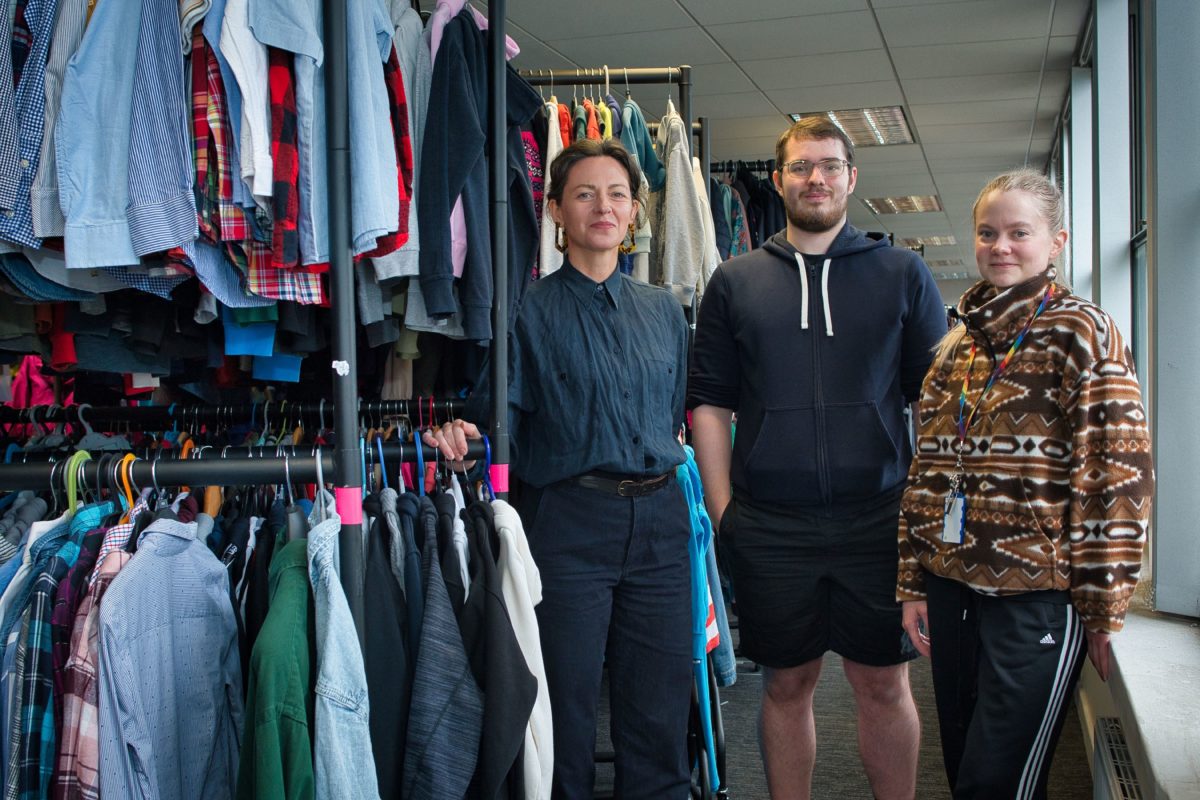
To tackle these issues, ApparelXchange have a vision of a connected and integrated clothing system for the city of Glasgow. Through partnerships with local authorities, charities and other social enterprises, this system will provide a shared wardrobe for the city so that families can easily access high-quality preloved children’s clothing at affordable prices – or for free if they self-refer or are referred to via partner organisations. Income will be generated through the sale of clothing, third-party funding sources, including agreements to provide clothing to families.
The system will provide a long-term, sustainable solution for families looking for affordable, decent, weather-appropriate clothing for their children. It will reduce pressure on their budgets, lowering the risk of falling into debt and allowing money to be spent on other essentials, with all the associated benefits that brings. Children will directly benefit by having access to a wide range of clothing appropriate to their needs, supporting their learning in school, participation in sports and other activities, and confidence in engaging within their community.
Firstport are thrilled to be able to support such a worthy winner and we look forward to helping them realise their ambitions.
The runners up
We also want to mention our brilliant runners-up: Thrive East Lothian CIC and Building Futures Galloway.
Thrive East Lothian CIC is run and led by women of colour who have faced socioeconomic disadvantages and decided to use this experience to build better solutions. Thrive aim to provide non-discriminatory, trauma-informed, and rights-based childcare provision in an area that lacks high-quality and affordable childcare services. They will offer a range of services, including out-of-school care, playgroups and workshops to the community to help them work on skills linked to parenting, employment, or even social and emotional development.
The service was developed in response to converging issues in Haddington, East Lothian. The cost-of-living crisis disproportionately affects women and particularly women of colour and with protected characteristics – most of whom are mothers. Within the local area, two-year-olds are not getting access to care they are entitled to without travelling to another area, which is both costly and time-consuming for parents, particularly with sparse transport links. As a result, children’s right to rest and play is often compromised due to caregivers having to prioritise other factors in their lives, such as work or other caring responsibilities. The lack of supported childcare also limits employment opportunities for their parents.
As well as providing high-quality, flexible and affordable childcare, they will host regular drop-in sessions to offer wider help for families. This is to aid their commitment to improving the lives of those they support, lifting families out of poverty and improving the health and wellbeing of the community. By respecting the values, individuality and cultural backgrounds of all those they serve, they aim to create a truly inclusive and supportive community. Their focus on person-centred support will ensure everyone receives the help and resources they need to truly ‘Thrive’.
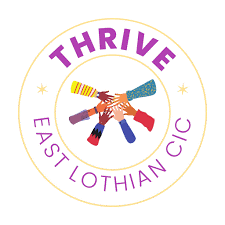
Thrive East Lothian logo 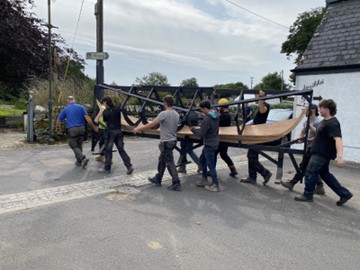
Building Futures Galloway
Building Futures Galloway, based in Whithorn, is a youth employability scheme with a difference. It specialises in offering in-work heritage construction training to young people in Galloway aged 18-25 who are remote from the labour market and may suffer barriers to employment. It also offers school-age pupils struggling with classroom learning, non-attenders or engaging in offending or risky behaviour the chance to sample skills taught by peers from the training scheme. These skills range from masonry to green wood furniture making.
The project was born after the pandemic when youth unemployment soared. Building Futures Galloway started by employing nine young people with challenges ranging from ADHD to deafness and social anxiety. They watched them grow, acquire externally certificated learning and become the core of a small heritage construction team. As a second step, they selected school non-attenders to train once a week, and teachers reported that the young people had improved their self-confidence and commitment to keeping up their literacy and numeracy. These changes lessened their risk of exclusion and complaints from the police.
Building Futures Galloway’s approach to young people is holistic: while they give skills training, they also provide support for issues experienced outside the workplace, leading by example. They also strive to find funds from external sources to help them overcome barriers and self-doubt, ranging from opportunities to get driving licenses and chainsaw certificates to experience travel abroad.
Initially set up as a side-project of the Whithorn Trust, Building Futures Galloway is now a social enterprise in its own right. They offer a variety of commercial services and products, from artisan furniture to building conservation and skills courses for the public and building heritage professionals.
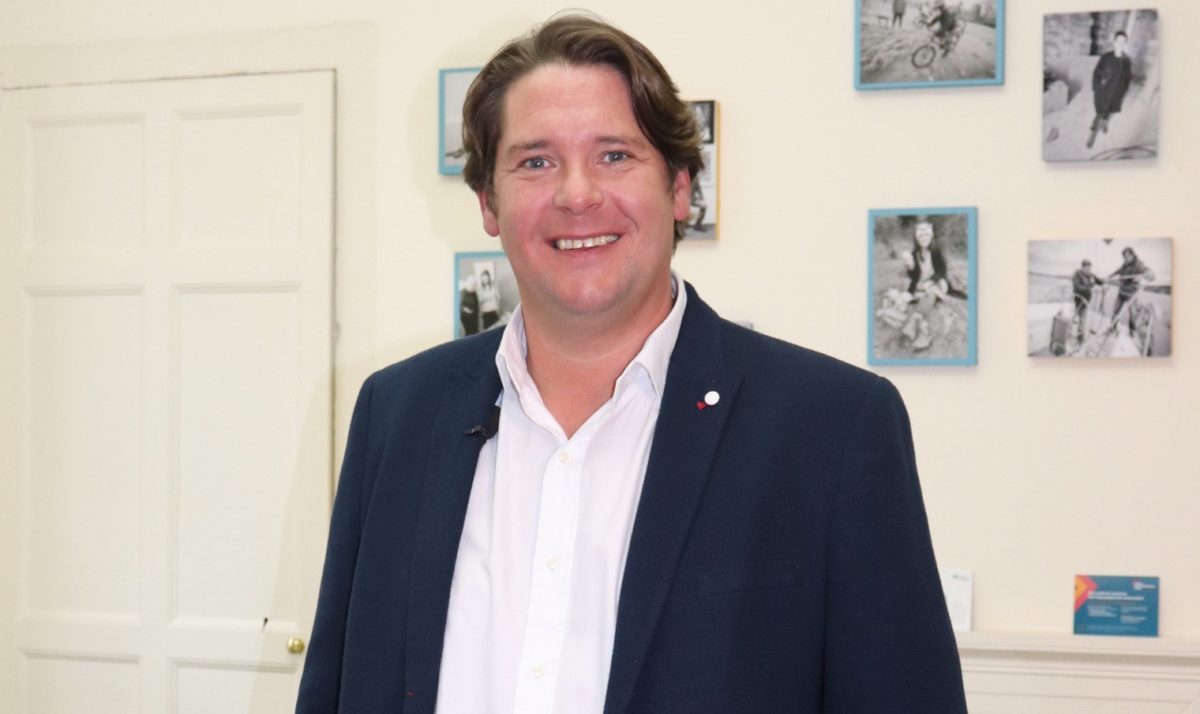
Our panel did not have an easy task in selecting a winner for this year’s challenge from this incredible pool of talent. In fact, one of our panel members, Chris Gray from Well-Fed Scotland (a previous Firstport awardee) shared his thoughts:
It was such an inspiring experience to hear from the three shortlisted applicants for this year’s Social Innovation Challenge and participate in the judging panel. They all showed a fantastic degree of commitment, purpose and innovative thinking. The solutions they came up with were all unique but with one thing in common: a refusal to accept the status quo and an intense drive to build a better world, one step at a time. I believe we found a worthy winner for the challenge, but I would like to congratulate both shortlisted candidates and wish them many future successes.
Whilst only one project can win the £50,000 award, our aim is to continue to work with all the finalists. Anisha from Thrive East Lothian CIC is also one of our Start It awardees, as she sets the foundations of her inspiring childcare business. And Building Futures Galloway are currently exploring potential next steps alongside our investment readiness team.
If you would like to meet our Social Innovation Challenge winner yourself, join us at the Gathering between 7 and 8 November. As well as hosting a session with the winners of both the 2022 and 2023 challenges on Tuesday, the Firstport stand will host a range of our awardees throughout the two days. To get a free ticket, head over to the Gathering website.
We hope to see you there!
